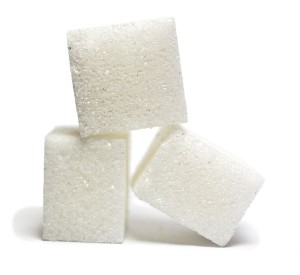Kombucha
Should You Drink It?
You may have noticed more people drinking kombucha instead of soda or juice at work, at school, when out and about. It has become quite popular. But is it healthy and should you try kombucha?
What is Kombucha?
Kombucha is a fermented green or black tea that has a slightly sweet and slightly acidic taste to it with some slight carbonation. (4, 6) This beverage has been consumed for over two thousand years in countries such as China and Japan, Russia and Germany (4). Tea and sugar is mixed with a scoby, which is a symbiotic product of yeast and bacteria. When the scoby is combined with the tea and sugar, the fermentation process begins.
Some people make their own, as kombucha makers can “give a way” a scoby. It is not difficult to make your own, but you want to make sure that the scoby that is given to you is free of contaminants. What is nice about making your own is that you know exactly what is in the product. What isn’t so nice about making your own is that you do have to keep everything very clean to avoid contamination. While it is rare, cases have been reported of those becoming sick after drinking home brewed kombucha, so I prefer to purchase trusted brands from my local health grocery store.
The downside to store bought is that, more than likely, has a lower probiotic content due to the time it travels and sits in the store versus the one that you made.
For the rest of us who don’t want to find someone who has a scoby and would rather drink kombucha from the store, here is what you need to know about kombucha
9 Reasons Why You Should Give Kombucha a Try
- It is loaded with beneficial probiotics. It can contain over 50 different probiotic strains! (5) This is the good bacteria needed for optimal gut health.
- Because of the bacteria it contains, it supports your immune health and digestive health
- Has antimicrobial properties (1)
- May decrease toxins known to cause liver damage
- May be supportive for those with diabetes (2)
- May be supportive for those with renal damage (3)
- May reduce heart disease risk (5)
- Cancer protective
- It contains essential nutrients. It contains not only good bacteria, but enzymes, amino acids and vitamins (5).
Note: when I say “it may” this is because some of these studies are done on rats and mice and not on humans and would also require some further research.
Kombucha Drinking Tips
- Don’t Go overbroad! Yes, you can drink too much! Drinking too much may result in gas and bloating and other digestive issues.
- Drink just one a day or only a few per week. Instead, add in other fermented foods instead of drinking the same kombucha every day.
- Be mindful of the sugar content! It does have sugar. A typical serving (250 ml) will have 5 grams of sugar. Read the label and choose ones in the 5 grams or less range. Some flavored kombuchas with added ingredient can end up with more sugar than you realize. Always read the label! (5)
- Drink it in the morning. Start your day with a tall glass of water to hydrate after your over night fast, then consume your kombucha for optimal benefits (5). (but really, any time that you drink it, you will reap the gut health benefits.)
- Don’t replace a healthy diet with kombucha. The amounts of nutrients in kombucha are small so don’t think that by drinking kombucha you don’t need to eat a healthy whole foods diet. (6)
- Kombucha is safe for recovered alcoholics. If you are a recovered alcoholic, yes you can drink kombucha. The alcohol content in kombucha is equivalent to what is found in some fruit juices (6).
Who Should Avoid It
- If you have SIBO (small intestinal bacterial overgrowth) Kombucha may cause some gut issues for you until the SIBO is resolved.
- If you are eating the Standard American Crap food diet. Too much of a good thing, well can be too much for your body to handle. Not that you shouldn’t drink it but you will need to go slow with adding in kombucha. (when ever you add in good bacteria to a disrupted gut microbiome, you want to go slow to avoid chaos in the gut. Introduce the new guys to the territory nice and slow)
- If you have a yeast sensitivity you should avoid kombucha. Typically, if you have candida, kombucha should be safe to consume and not cause further yeast overgrowth. (6)
- Some people are sensitive to tea and if this is you, avoid kombucha (6).
- If you get panic attacks, the lactic acid in kombucha may cause an attack if your panic attacks are caused by lactic acid buildup/lactic acid sensitivity (not all are). Place a few drops of kombucha under your tongue then wait a few minutes before drinking the rest. If you do suffer from lactic acid build up panic attacks, aerobic exercise such as running, or biking can bring the acid level down. (7), (8)
Bottom Line: Kombucha can be a beneficial add in to an already healthy diet or a great starting place on your journey to healthy eating. A few bottles per week is really all you need to reap the beneficial gut benefits. Don’t make this your only probiotic source. Add in fermented foods and rotate them with the kombucha.
Sources
(1) https://www.ncbi.nlm.nih.gov/pubmed/18979556
(2) https://www.ncbi.nlm.nih.gov/pubmed/22591682
(3) https://www.ncbi.nlm.nih.gov/pubmed/19943946
(4) https://www.ncbi.nlm.nih.gov/pubmed/10914673
(6) http://americannutritionassociation.org/newsletter/kombucha-tea
(7) https://scientificamerican.com/article/panic-attacks-as-ph-problem





Leave A Comment
You must be logged in to post a comment.